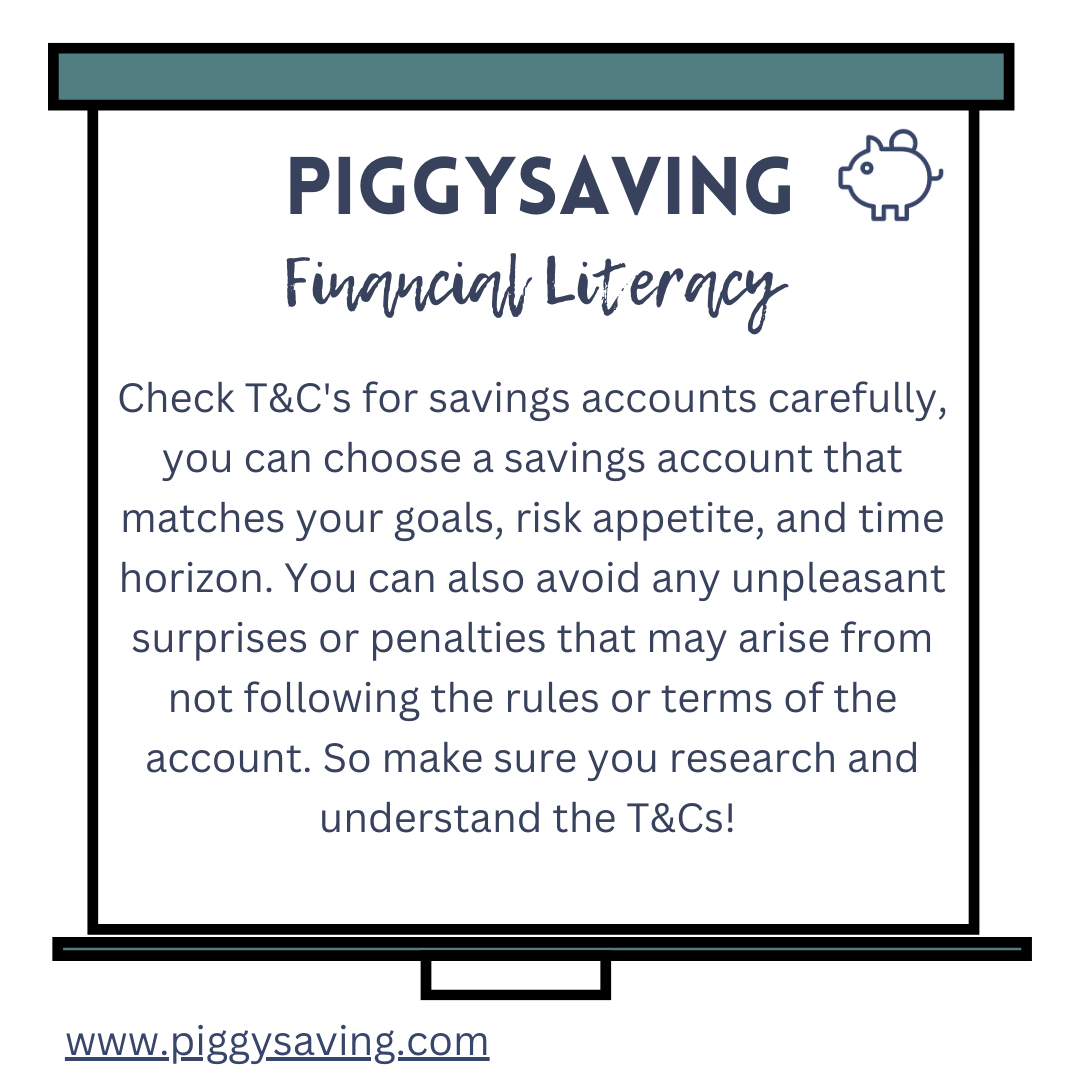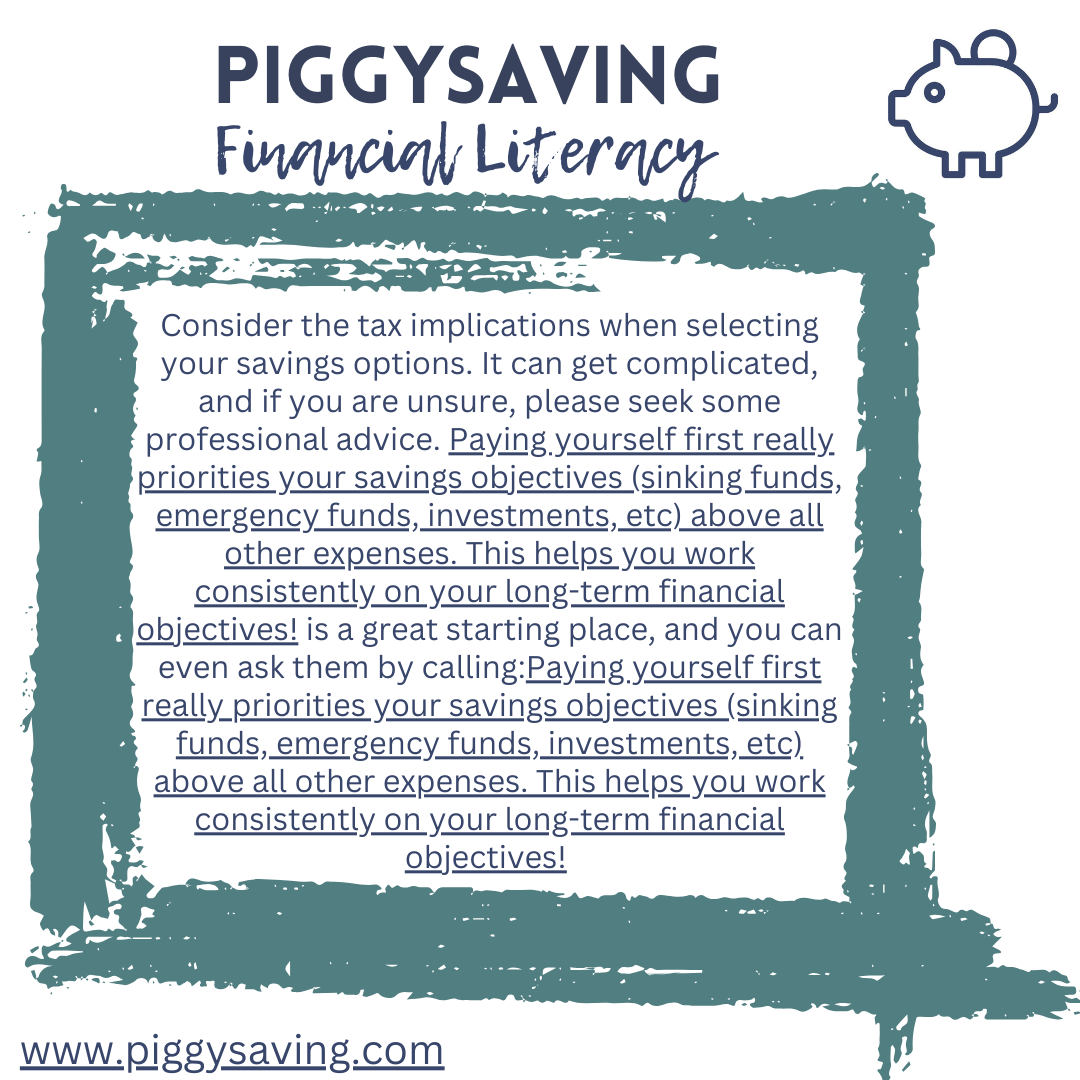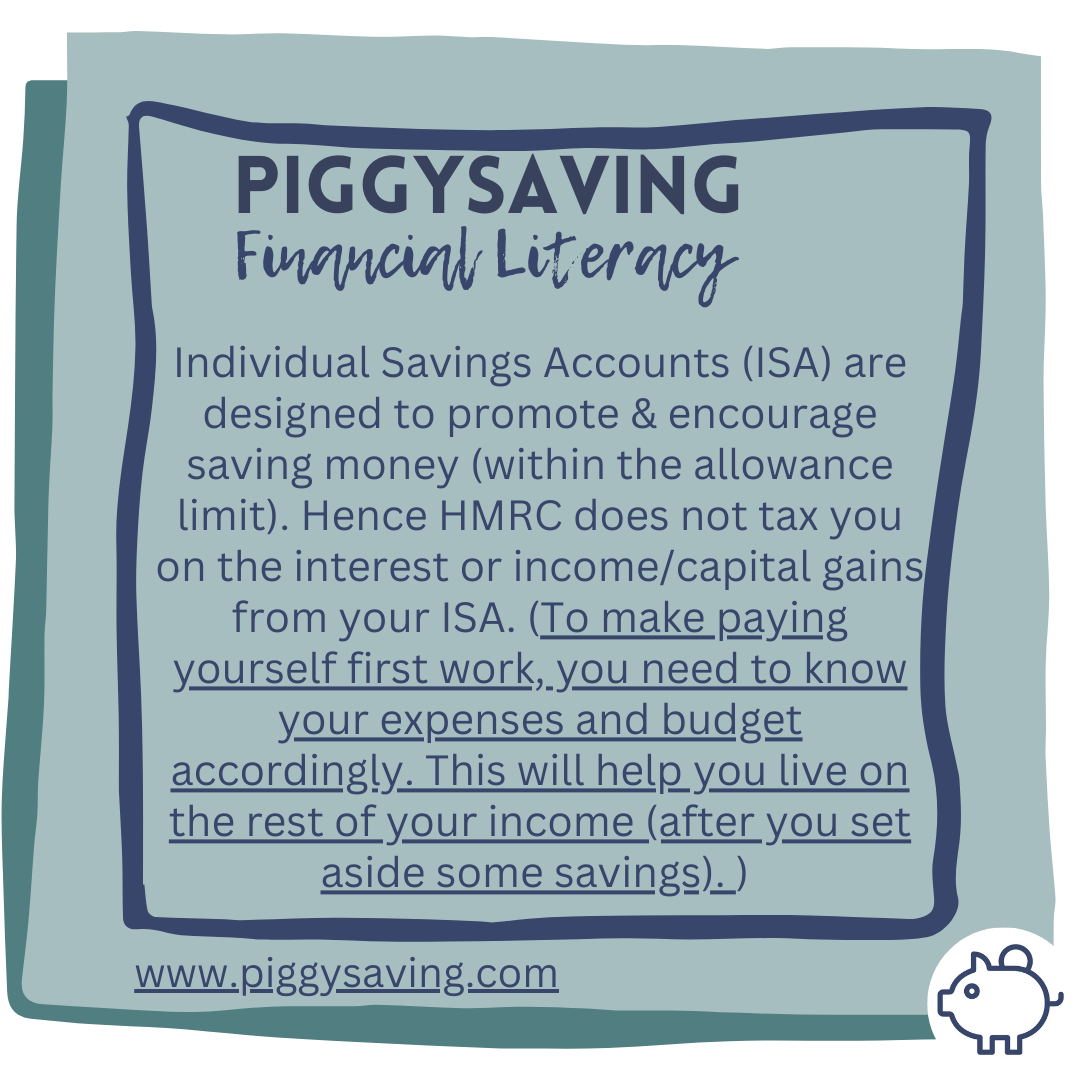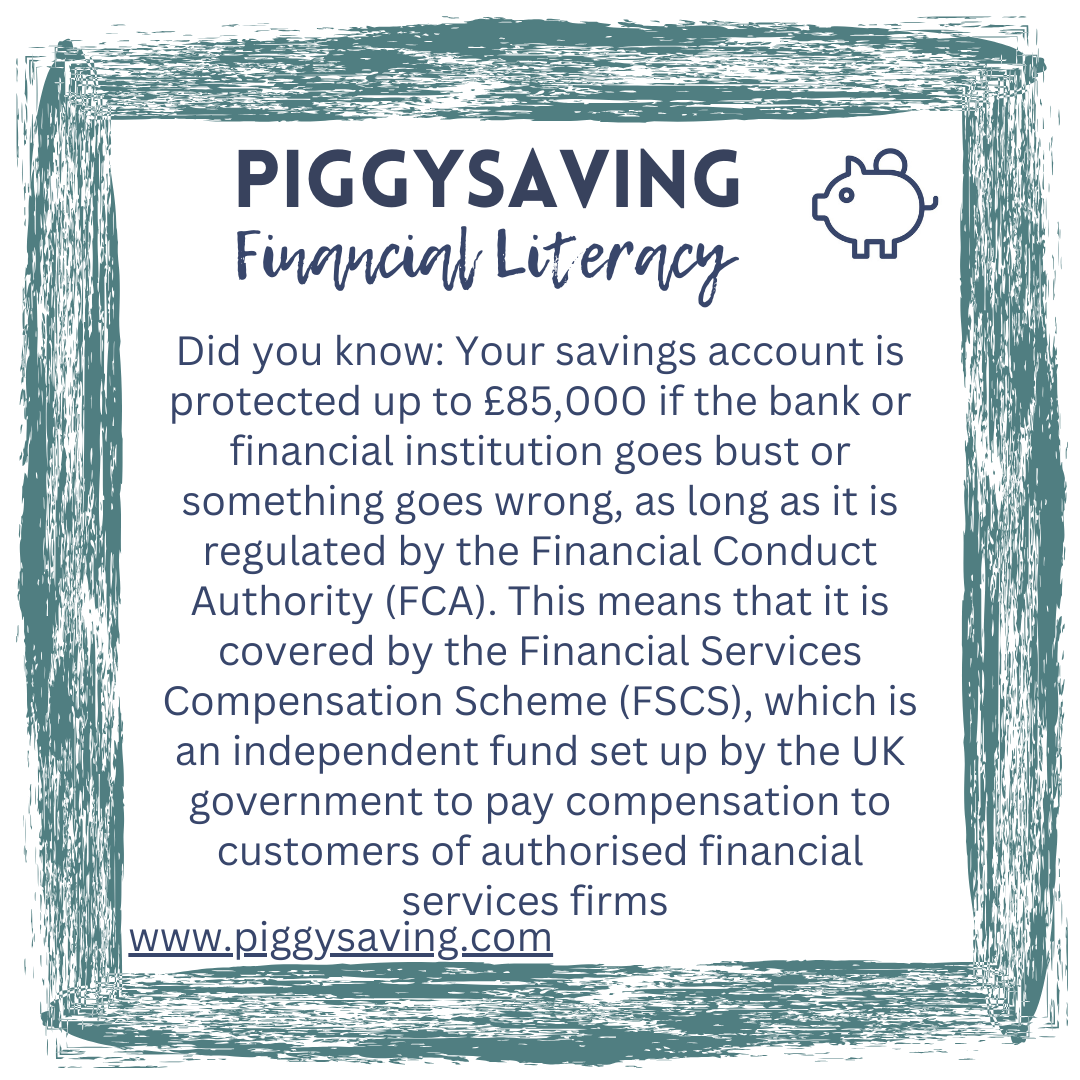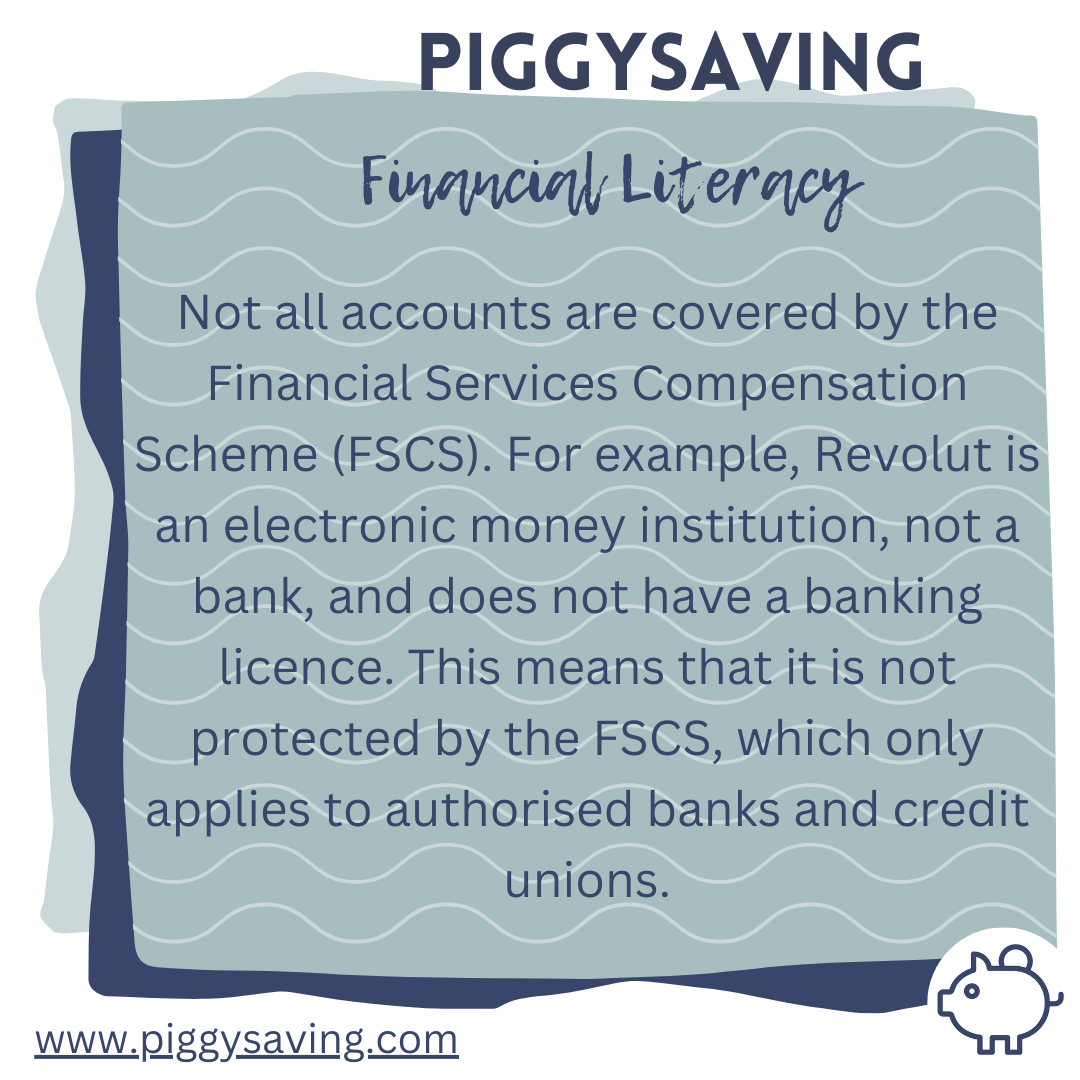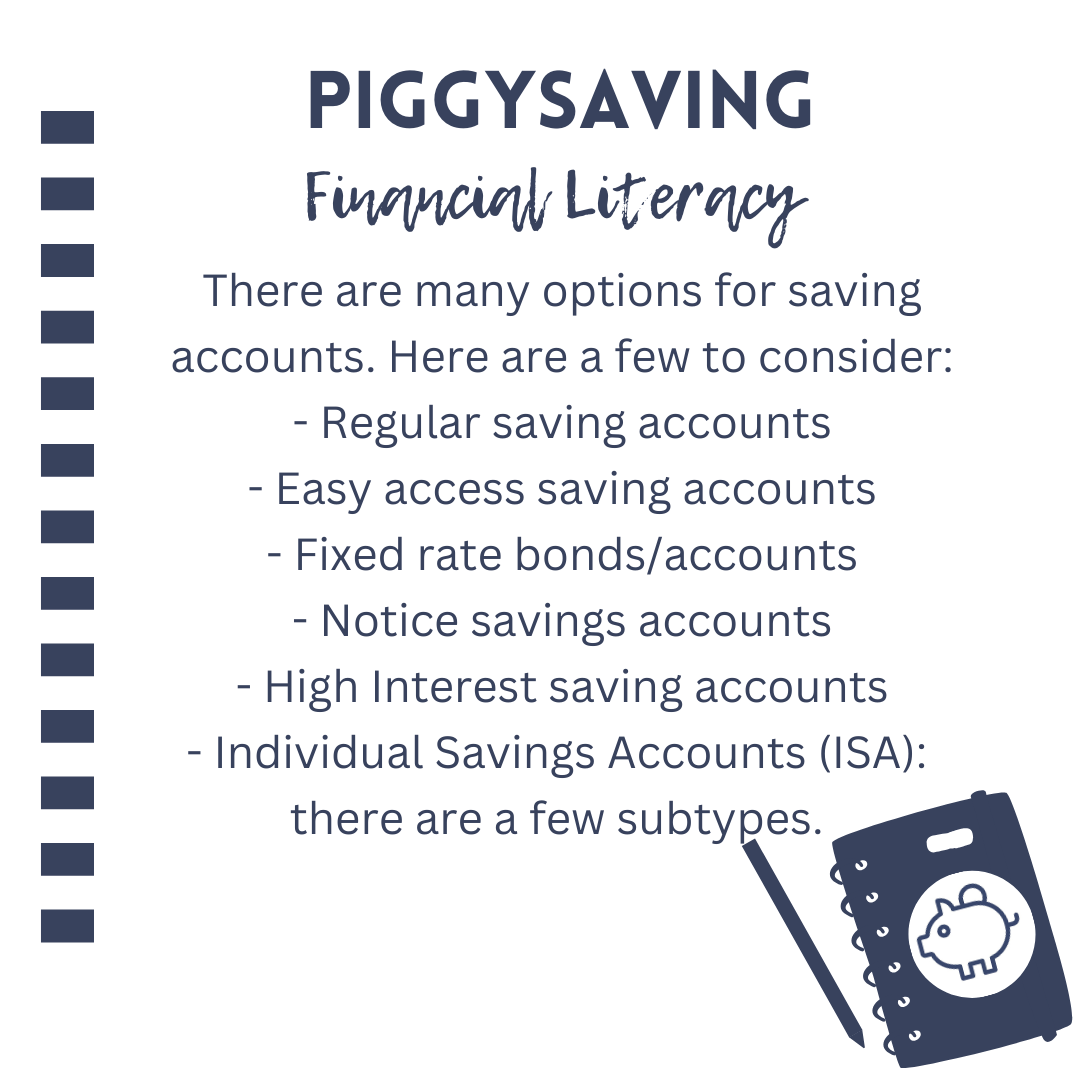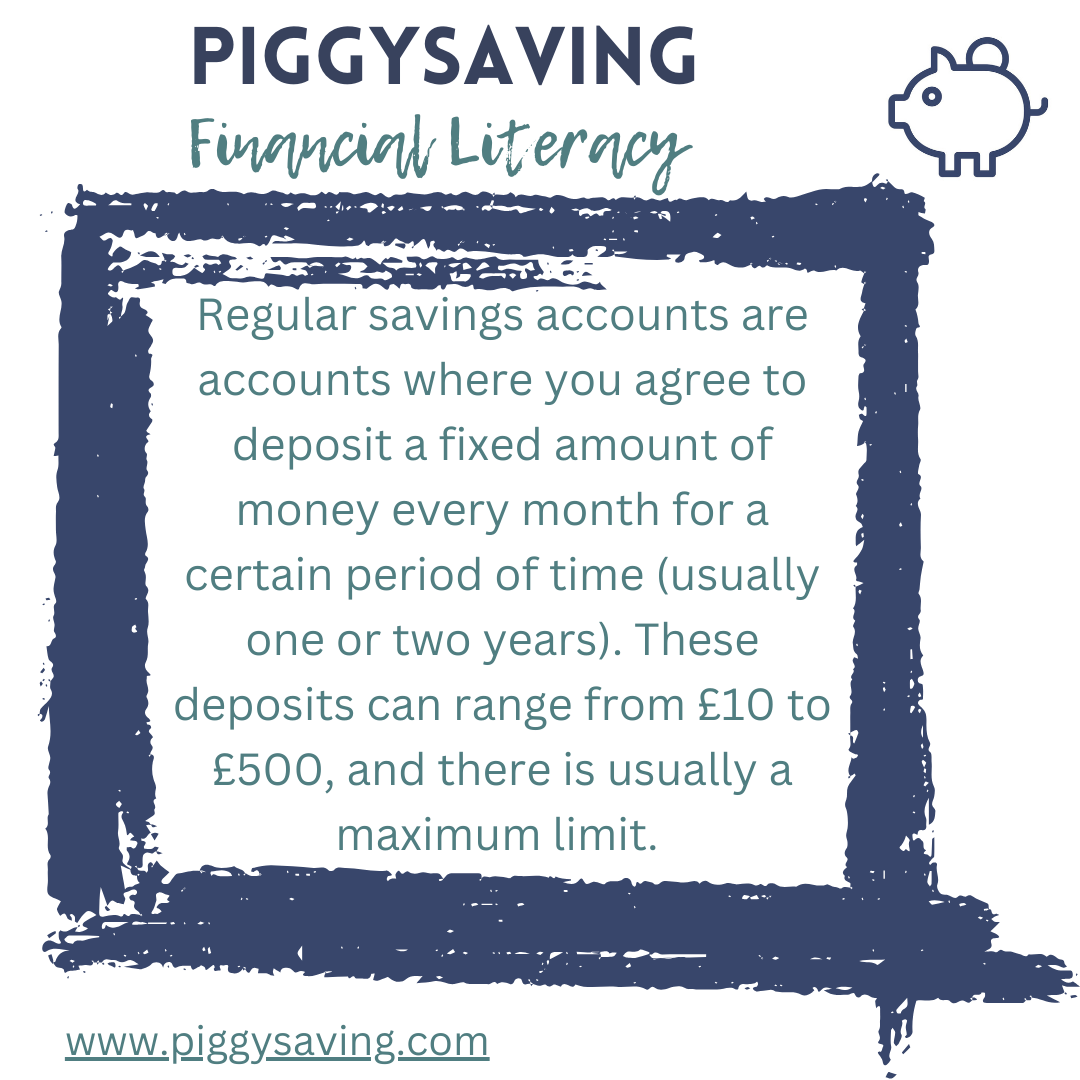Financial Literacy in bite sizes
Nov. 7, 2023
Check T&C's for savings accounts carefully, you can choose a savings account that matches your goals, risk appetite, and time horizon. You can also avoid any unpleasant surprises or penalties that may arise from not following the rules or terms of the account. So make sure you research and understand the T&Cs!
#savingoptions #savingaccounts #termsandconditions
Nov. 11, 2023
Consider the tax implications when selecting your savings options. It can get complicated, and if you are unsure, please seek some professional advice. https://www.gov.uk/topic/personal-tax/savings-investment-tax is a great starting place, and you can even ask them by calling:https://www.gov.uk/government/organisations/hm-revenue-customs/contact/income-tax-enquiries-for-individuals-pensioners-and-employees
#savingoptions #taximplications
Nov. 13, 2023
Individual Savings Accounts (ISA) are designed to promote & encourage saving money (within the allowance limit). Hence HMRC does not tax you on the interest or income/capital gains from your ISA. (https://www.gov.uk/individual-savings-accounts/how-isas-work)
#savingaccounts #isa
Nov. 16, 2023
Did you know: Your savings account is protected up to £85,000 if the bank or financial institution goes bust or something goes wrong, as long as it is regulated by the Financial Conduct Authority (FCA). This means that it is covered by the Financial Services Compensation Scheme (FSCS), which is an independent fund set up by the UK government to pay compensation to customers of authorised financial services firms
#savingoptions #fscs
Nov. 17, 2023
Keep in mind that the Financial Services Compensation Scheme (FSCS) protects the institution, not the account. If you have multiple accounts at the same bank, the total amount that is protected is £85,000 (£170,000 for joint accounts). For example, if you have two accounts with £50,000 each and the bank goes bankrupt, you will only receive £85,000 for both accounts, losing £15,000.
#savingoptions #fscs
Nov. 21, 2023
The Financial Services Compensation Scheme (FSCS) protects your money up to £85,000 per banking licence, not per bank. For example, Halifax is a brand within the Bank of Scotland, which means that if you have accounts in both banks and they go bankrupt, you are only protected up to £85,000 for both accounts combined. You can check which banks share a licence on the FSCS website or the Bank of England website.
#savingoptions #fscs
Nov. 22, 2023
Not all accounts are covered by the Financial Services Compensation Scheme (FSCS). For example, Revolut is an electronic money institution, not a bank, and does not have a banking licence. This means that it is not protected by the FSCS, which only applies to authorised banks and credit unions.
#savingoptions #savingaccounts #fscs
Nov. 25, 2023
There are many options for saving accounts. Here are a few to consider: - Regular saving accounts - Easy access saving accounts - Fixed rate bonds/accounts - Notice savings accounts - High Interest saving accounts - Individual Savings Accounts (ISA) - there are a few subtypes.
#savingoptions #savingaccounts
Nov. 27, 2023
Regular savings accounts are accounts where you agree to deposit a fixed amount of money every month for a certain period of time (usually one or two years). These deposits can range from £10 to £500, and there is usually a maximum limit.
#savingoptions #savingaccounts
Nov. 30, 2023
Regular saving accounts generally have higher interest rates than regular accounts and easy access savings accounts. This mainly because it is a fixed term on the account
#savingoptions #savingaccounts
